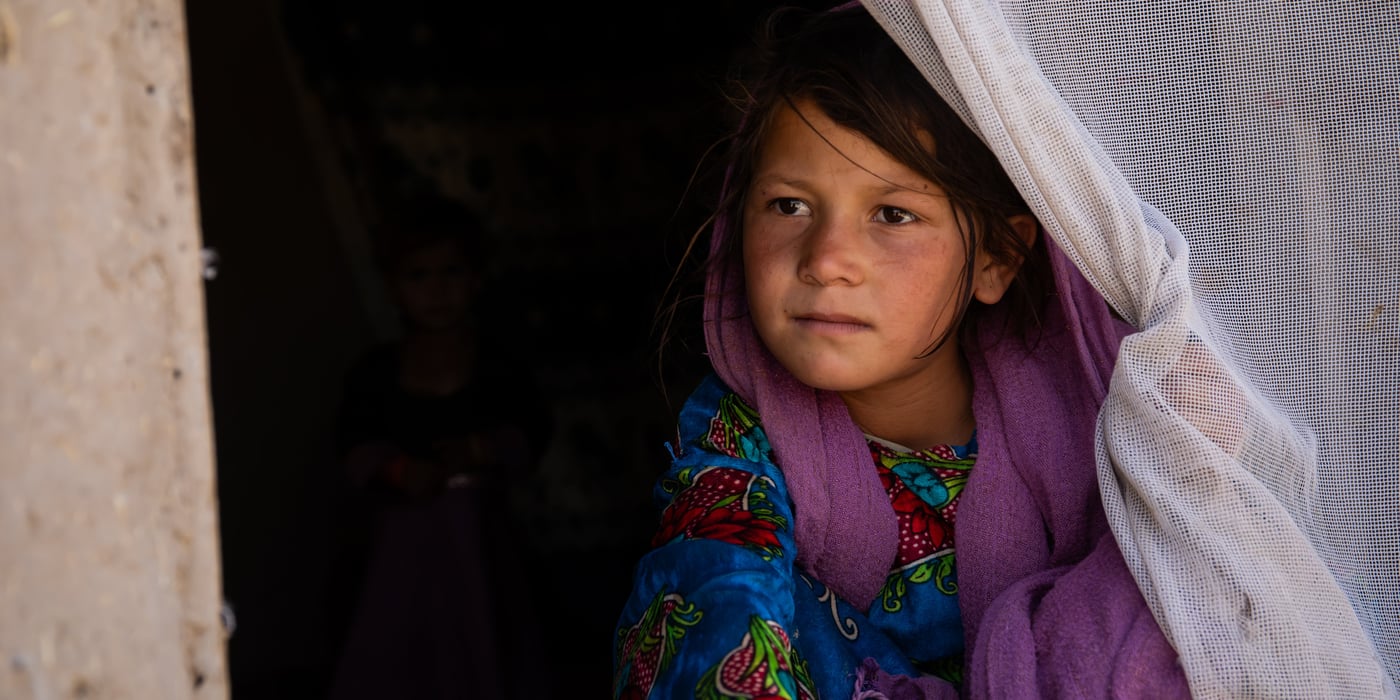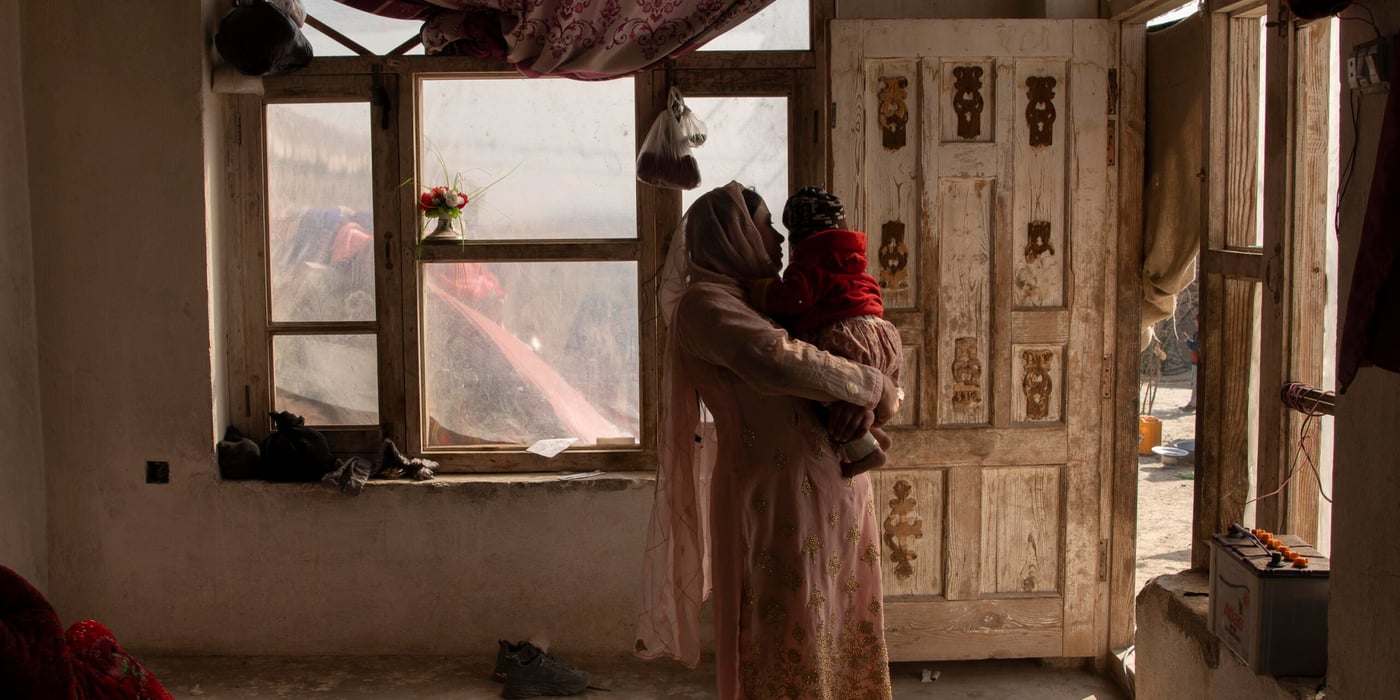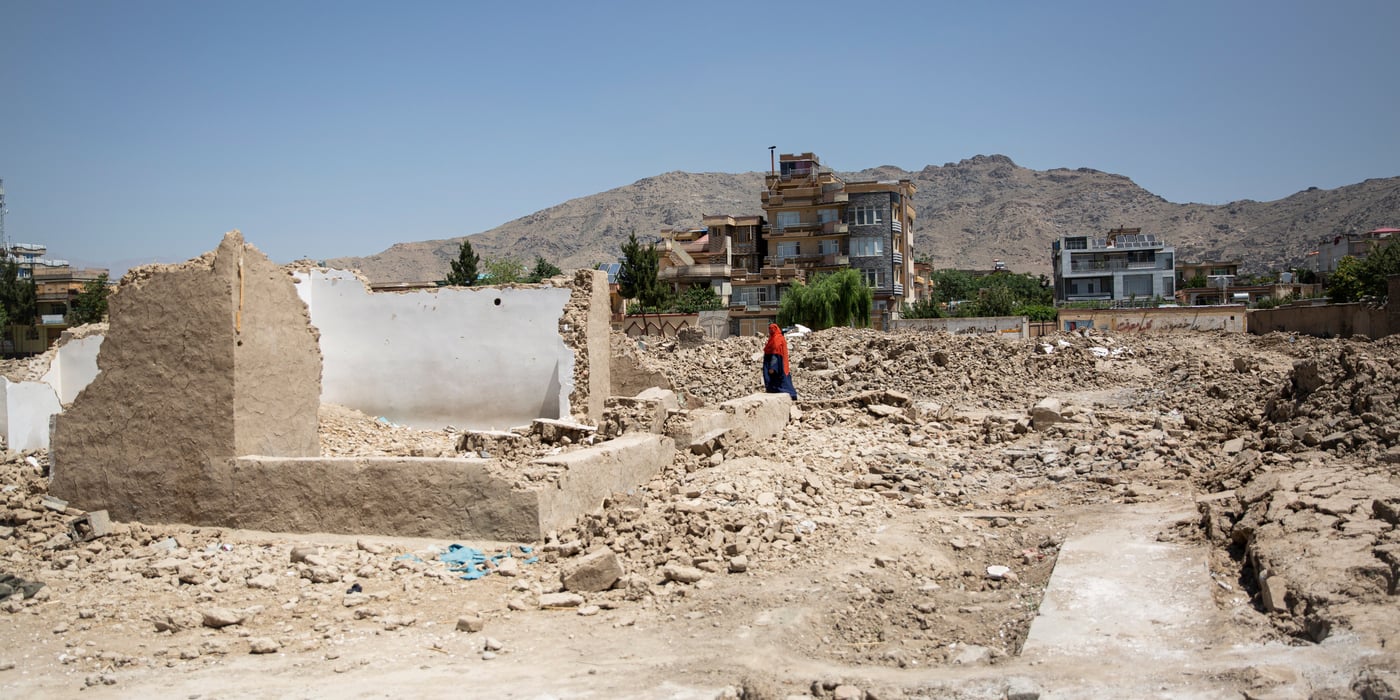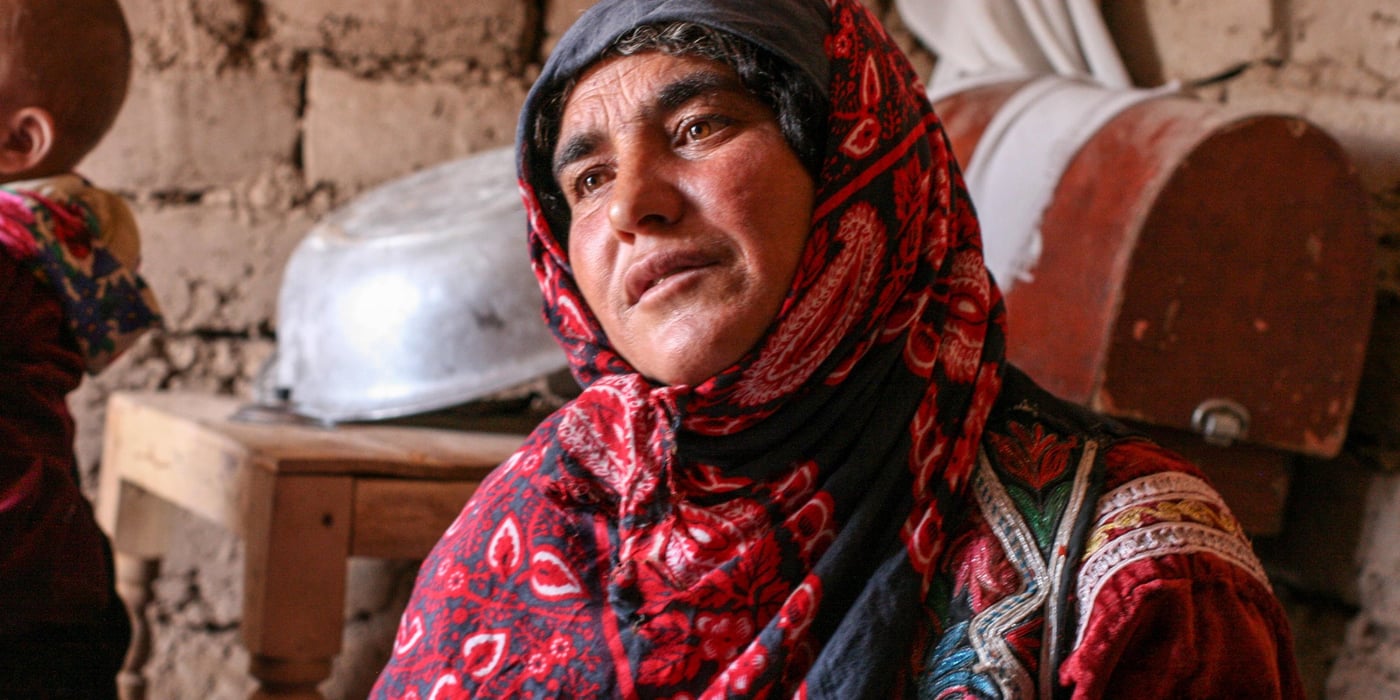
When Malikeh would cook inside her home on rainy days, bits of mud from the roof of her makeshift shelter would fall inside her pot of food.
“I’ve lived in this camp for almost two years,” says the 40 year old mother of three who is displaced from Ghor province to Herat due to conflict. “We would use anything we could get our hands on to try to stop the rain, snow, and elements. Since we were using plastic on the roof, the noise from the wind blowing and the plastic flapping would drive us crazy at night, especially the children. We would wake up with our eyes red.”
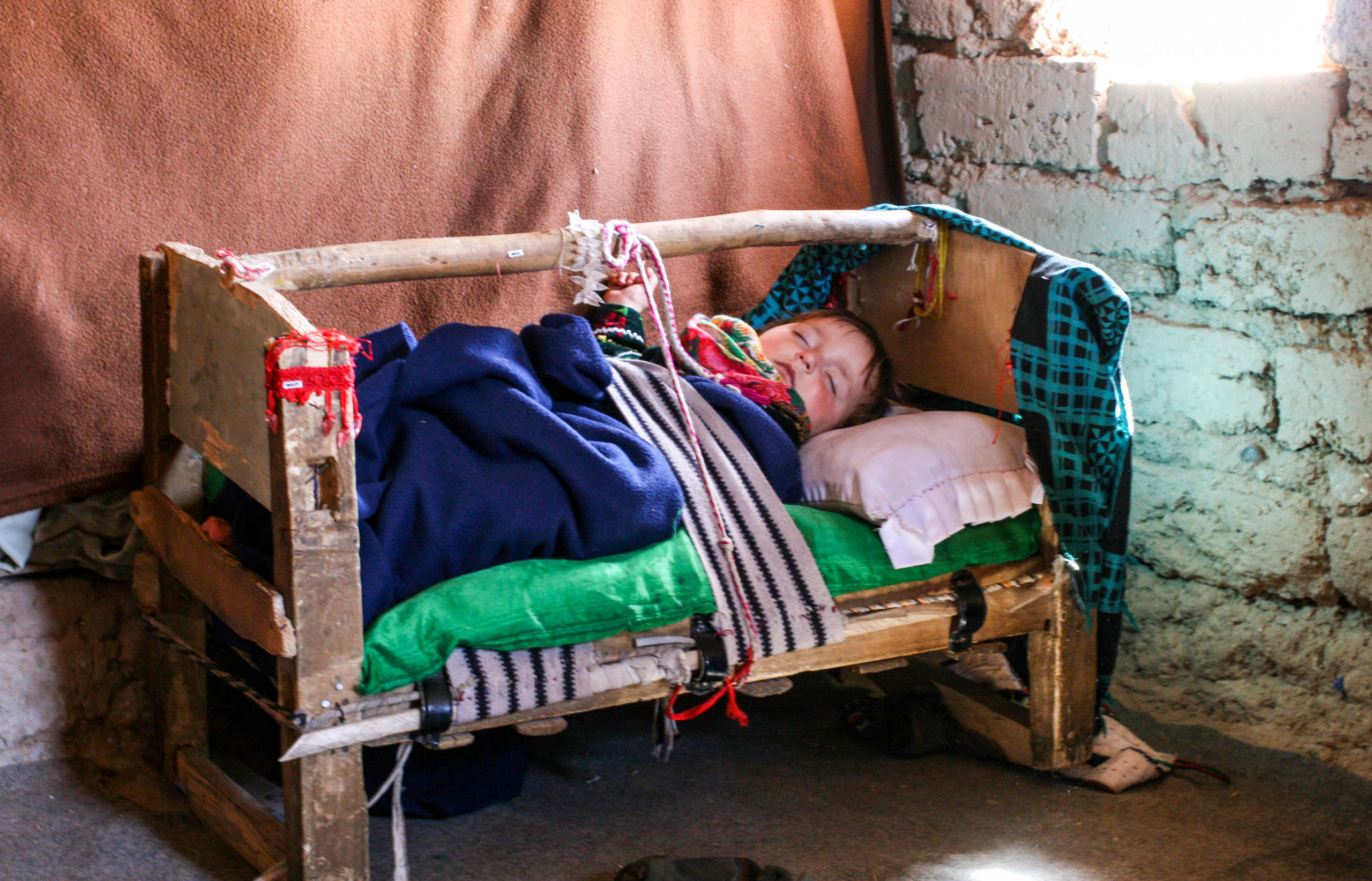
With the improved roofs, children especially can sleep more peacefully. Photo: NRC/Danielle Moylan
The absence of sanitation facilities was equally alarming. “We were nervously walking all the way to the remote areas like in the wheat fields but only during the day. If men were also there we’d walk right back,” says Sajideh, 40, another internally displaced person living in the Herat informal settlements. “Without soap and proper equipment, the kids were always getting sick.”
In the Herat informal settlements, NRC weatherproofed 370 mud clay homes, installed 24 mobile latrines, and distributed 370 hygiene kits in addition to providing NRC-funded hygiene training sessions for internally displaced people. The project was implemented with funding from the Canadian Embassy in Afghanistan through its Canada Fund for Local Initiatives grant.
Malikeh, who stated she is incredibly grateful for the help she received, says that the relatively simple act of upgrading shelter roofs made a huge difference in their quality of life.
“The new ceiling material kept our homes warmer this past winter. There was no more wind noise. And not a single drop of rain or mud got inside the house.”
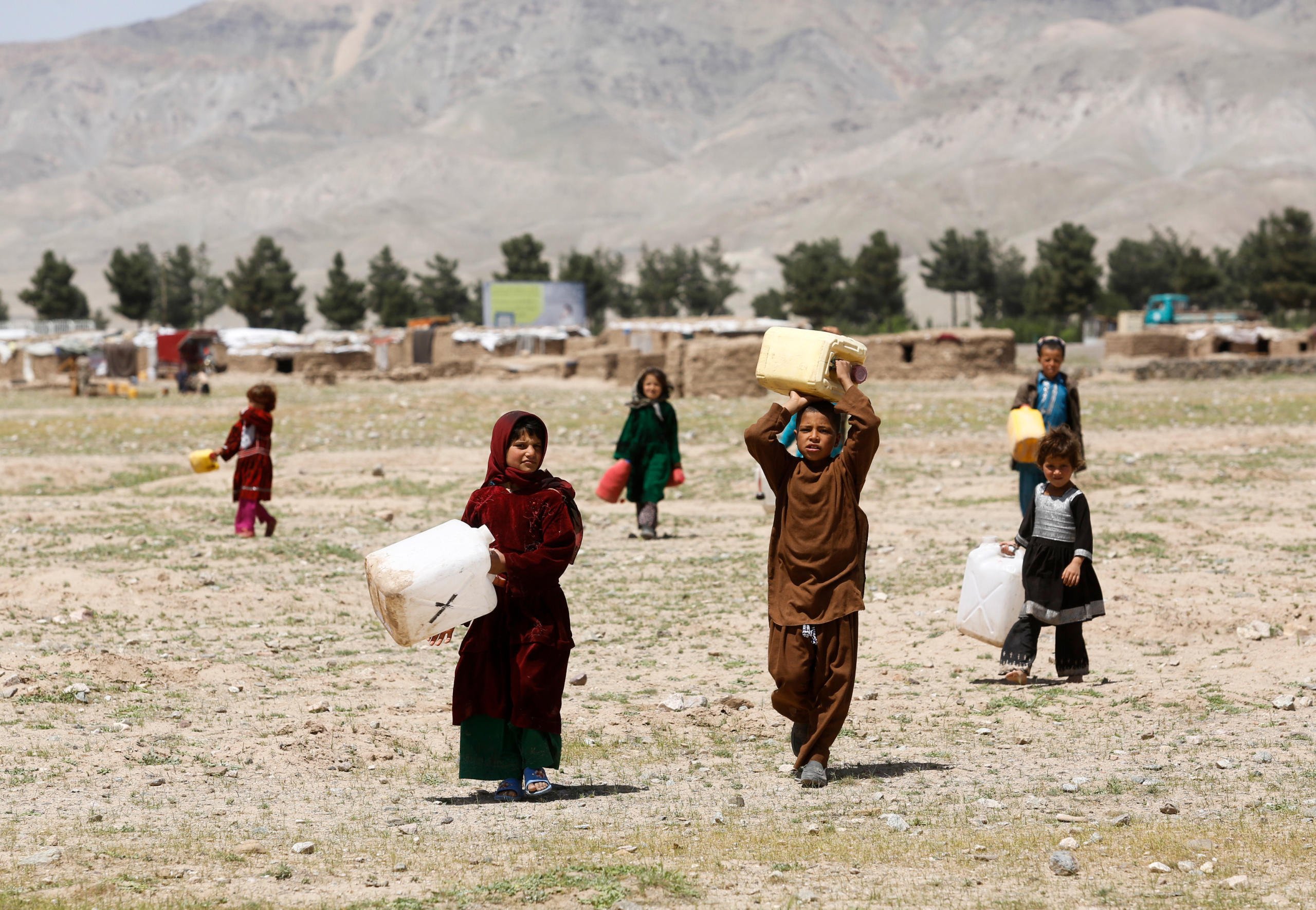
Children carrying water from a site a couple of kilometers away from their homes in one of Herat’s many settlements. Photo: Kennet Havgaard/NRC
Of the 370 families assisted, NRC identified 14 as child-headed households in which families depend on children to take on the primary responsibilities.
“Since my mother died seven months ago at another camp, I do all of the cooking and cleaning now,” says Amina, 10, a resident of one of Herat’s informal settlements.
When asked if she goes to the community school for internally displaced people, Amina states that she does not always get to attend. With little means of support in addition to dismal living conditions, it is not unusual for households to rely on the efforts of the children of the family to work, beg, fetch water, cook, take care of siblings, and other adult responsibilities.
NRC continues to work in Herat and throughout Afghanistan to assist the most vulnerable displacement affected households including those headed by children, women, the elderly and the disabled.


